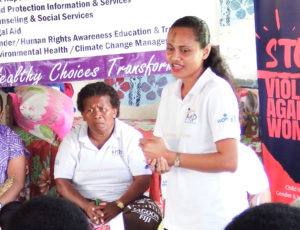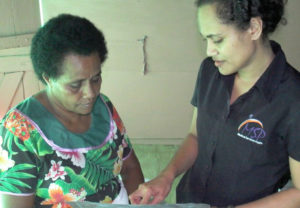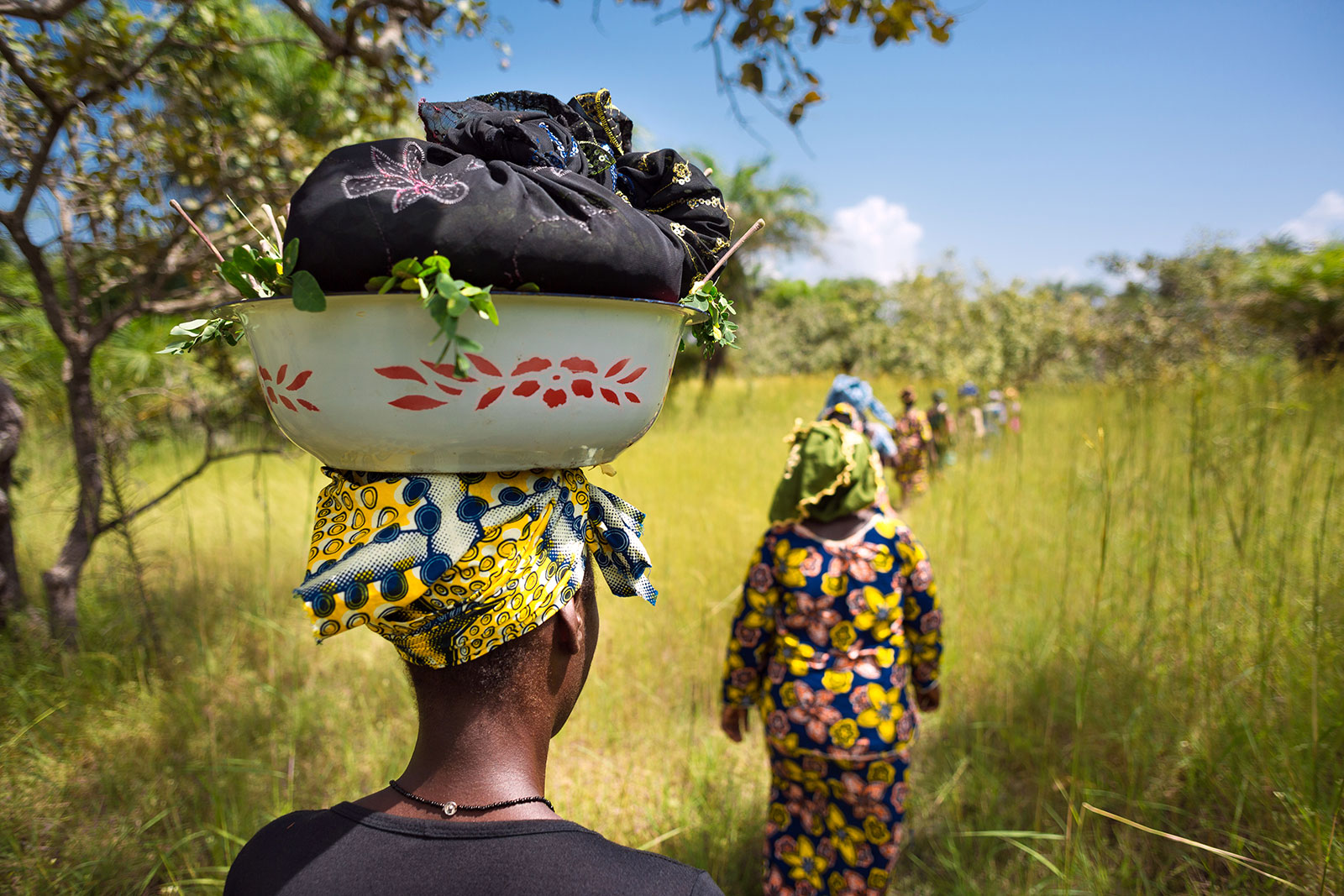In late 2017 Nasi, a clinic manager and head nurse for nonprofit organization Medical Services Pacific, eagerly returned to her hometown of Labasa on Fiji’s second largest island of Vanua Levu. Her community was in need. In the Pacific region, cyclones, droughts and floods are becoming increasingly unpredictable and extreme – with rates of violence against women and girls in the Pacific already double the global average and known to worsen in a disaster.

Nasi presenting on MSP services during a village outreach session in Bua Province, Vanua Levu Island, Fiji.
With funding from Women’s Peace and Humanitarian Fund, Nasi’s employer MSP, built a clinic to provide free medical, counselling, and legal support services to survivors – even in the most remote villages on the island. It also serves as an emergency shelter and provides humanitarian response during disasters.
Nasi explained the importance of the ability to provide mobile services saying, “The women in the villages are very isolated, transportation is a problem – bringing these services to the village really benefits them,” said Nasi. “It may be the first time some of them have had preventative medical services.”
Nasi became interested in MSP’s one-stop clinic model when she was treating rape and sexual assault cases for children under five years old in her previous job. She noticed how children became more traumatized after being referred to multiple places to access services and that having everything “under one roof” helped reduce fear and anxiety.
Nasi joined MSP in early 2016 during the response to Tropical Cyclone (TC) Winston, a Category Five cyclone that devastated Fiji. During TC Winston, there were limited humanitarian supplies and services in place to prevent and respond to gender-based violence in emergencies in the Northern Division. MSP had to mobilize staff, essential medical supplies, and equipment from another island, with a full-day’s journey by vehicle and boat. This delayed the humanitarian response as well as reduced MSP’s capacity to provide on-going gender-based violence services in its other locations.
Now with the one-stop clinic in Labasa, MSP can provide daily health and advocacy services, mobile outreach, and respond immediately from within the community when natural disasters occur. While the clinic specializes in serving the needs of women and girls, it also treats men and boys. As of September 2018, the clinic has provided services to XXXX people and treated XX cases of sexual- and gender-based violence.

Nasi knows the Labasa clinic is essential to provide services to women in the interior of Fiji. She declared, “The most important thing for our continued service to the communities is the donors – they are the key to keeping the flame burning… If they stop, we will have to stop.”
WPHF also support three other organizations in the Pacific Island Region to help improve the reach of humanitarian assistance for everyone and build a more gender-inclusive response process.
Support for the Labasa clinic was also provided by the Canada Fund for Local Initiatives for medical equipment.
